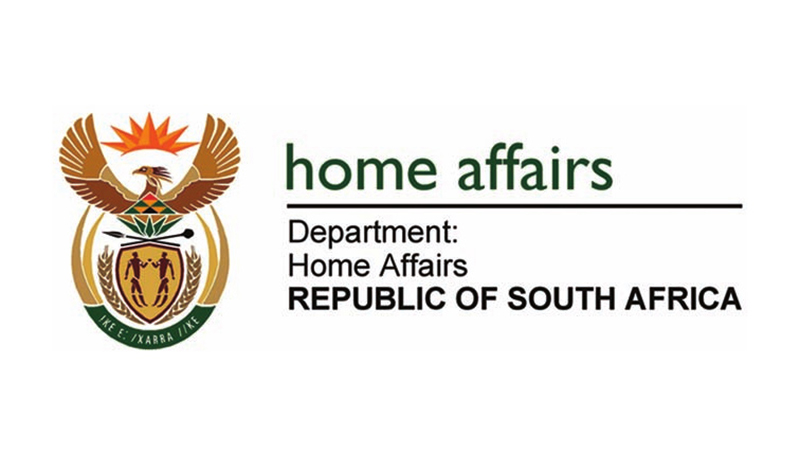The Department of Home Affairs on Monday announced that all its front offices in all the provinces are back online and are providing full services to citizens.
This is after service interruptions in some offices arising from a system upgrade of the live capture system which was conducted on 29-31 March 2019.
The live capture system of the 193 modernised offices was upgraded as part of the department’s modernisation programme.
Due to the magnitude of work to be done and new software that had to be transmitted to the offices, several technical errors were encountered which affected operations at modernised offices.
By the end of business on Monday, 1 April 2019, most of the front offices were able to transact and issue enabling documents (80%) with an exception of a few (20% which were offline).
To date, there are only nine offices reported to have camera errors which are being addressed, however all other services including collections of IDs, passports and processing of births, marriages and deaths are online and available.
“Clients who have applied for documents, including smart ID cards and passports, are invited to visit Home Affairs offices where they have applied to collect their documents.
“The Department is thankful to citizens for their patience, and reiterates its apology for service interruptions.
“The ongoing modernisation programme at Home Affairs, whose outcomes include a new national identity system, requires new technology which then necessitates system upgrades from time to time. How long they take depends on the magnitude of the work to be done,” the department said.
The department currently operates in an environment presenting many challenges with regard to meeting service delivery standards consistently.
A major factor is that its footprint is only partially aligned with the location and size of communities. A related factor is that most of the front offices are rented by the Department of Public Works and therefore, the quality of infrastructure provision, such as office space, networks and access, widely vary.
This prevents the department from modernising all of its offices. In spite of current challenges, by March 2019, out of 411 front line offices, 193 were converted to use a fully digital process for issuing smart ID cards and secure passports. Fourteen banks also operated during this period.
Since the launch of the smart ID card on 18 July 2013, the number of cards issued were 12 844 745. In the 2018/19 financial year, 3 127 217 smart ID cards were issued.
Last week, the department received 19 096 applications in spite of technical glitches experienced.
There are 355 257 smart ID cards in various offices that are uncollected as at 31 March 2019. Of the total, 278 242 are re-issues where such clients are likely to have documents in their possession while 77 015 are for those who have applied for the first time and never came to collect.
The province with the highest number of uncollected IDs is Gauteng (at 102 468). The province with the least number of uncollected documents is the Northern Cape, with 12 255 smart ID cards uncollected. – SAnews.gov.za



